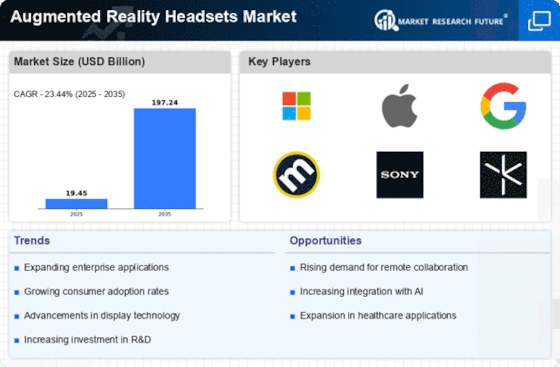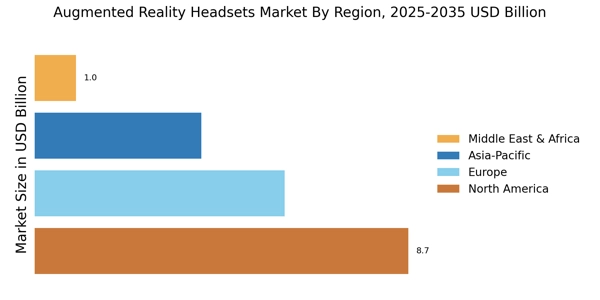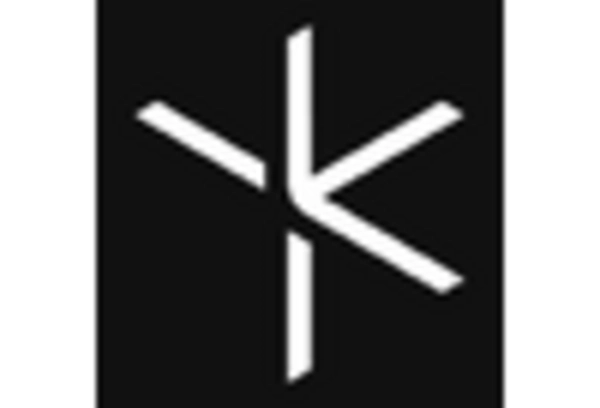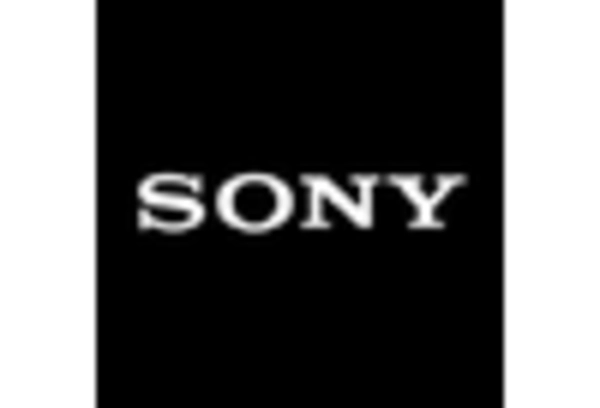Advancements in AR Technology
Technological advancements play a pivotal role in shaping the Augmented Reality Headsets Market. Innovations in hardware, such as improved display resolutions, lighter materials, and enhanced battery life, are making AR headsets more appealing to consumers and enterprises alike. Furthermore, software developments, including more sophisticated AR applications and user-friendly interfaces, are expanding the potential use cases for these devices. According to recent data, the AR software market is expected to reach USD 100 billion by 2026, indicating a robust growth trajectory. This technological evolution not only enhances user experience but also encourages investment in AR headsets, thereby propelling market growth.
Expansion of Retail Applications
The retail sector is increasingly adopting augmented reality solutions, which is positively impacting the Augmented Reality Headsets Market. Retailers are utilizing AR headsets to enhance customer experiences through virtual try-ons, interactive displays, and personalized shopping experiences. This trend is supported by data indicating that 70% of consumers are more likely to purchase products when they can visualize them in their environment using AR technology. As retailers recognize the potential of AR to drive sales and improve customer satisfaction, investments in AR headsets are expected to rise. This expansion in retail applications is likely to contribute significantly to the overall growth of the augmented reality headsets market.
Increased Investment in AR Startups
The Augmented Reality Headsets Market is witnessing a surge in investment directed towards AR startups. Venture capitalists and tech giants are increasingly recognizing the potential of augmented reality applications across various sectors, including retail, gaming, and training. In 2025, investments in AR startups are projected to exceed USD 10 billion, reflecting a growing confidence in the market's future. This influx of capital is likely to foster innovation and accelerate the development of new AR headset technologies. As startups introduce novel applications and features, the competitive landscape will evolve, further stimulating interest and adoption of augmented reality headsets.
Rising Demand for Remote Collaboration
The Augmented Reality Headsets Market is experiencing a notable surge in demand for remote collaboration tools. As organizations increasingly adopt hybrid work models, the need for effective communication and collaboration solutions has intensified. AR headsets facilitate immersive virtual meetings, allowing participants to interact with 3D models and share information in real-time. This trend is supported by a report indicating that the market for remote collaboration tools is projected to grow at a compound annual growth rate of 25% over the next five years. Consequently, the integration of AR technology into collaboration platforms is likely to enhance productivity and engagement, driving further adoption of augmented reality headsets.
Growing Interest in Gaming and Entertainment
The gaming and entertainment sectors are significantly influencing the Augmented Reality Headsets Market. As consumers seek more immersive experiences, AR technology is being integrated into gaming platforms, enhancing user engagement and interaction. The AR gaming market is anticipated to reach USD 30 billion by 2026, driven by the popularity of mobile AR games and interactive experiences. This trend is encouraging developers to create content specifically designed for AR headsets, thereby expanding the market. The convergence of gaming and augmented reality not only attracts a younger demographic but also encourages broader acceptance of AR technology in everyday entertainment.

















